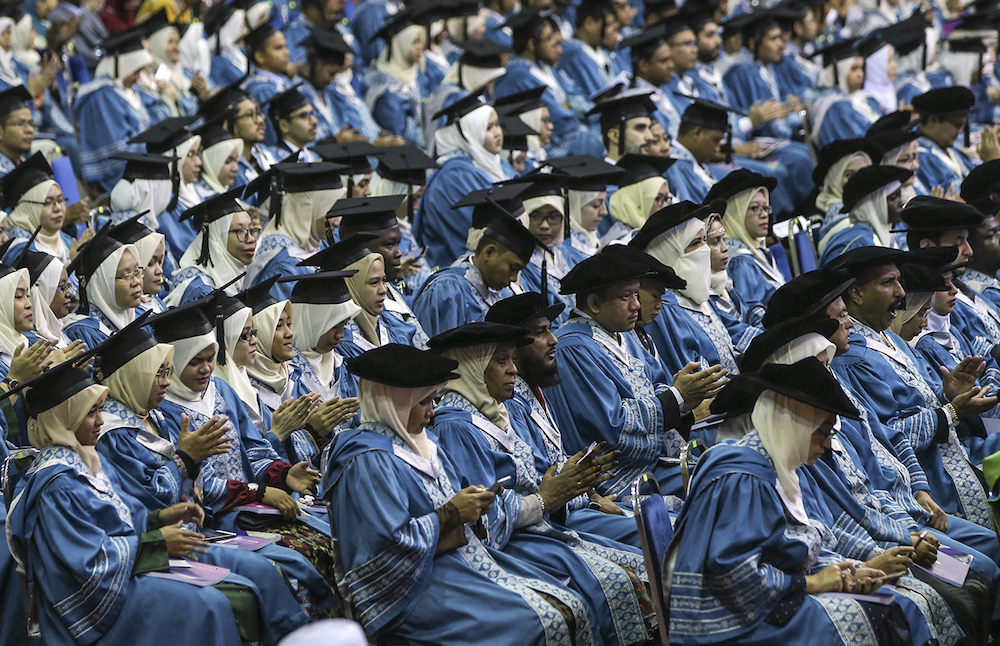KUALA LUMPUR, April 25 — The pursuit of higher positions in global university rankings is a constant drain on resources and even caused some institutions to neglect education, said panellists discussing the topic of ‘Becoming the World’s Top Universities’.
University of Nottingham Malaysia chief executive Prof Graham Kendall and International University of Malaya-Wales (IUMW) vice-chancellor Tay Kay Luan shared the view.
“When you look at rankings, it is a business. The rankings are driven by commercial organisations, so the two rankings that everyone sort of looks at mainly are the QS World University Rankings and Times Higher Education World University Rankings. And they are driven by business needs.
“They are money-making organisations and they want to entice us into the game and once you’re in the game, you can’t get out. And all the time they’re making money,” said Kendall speaking on how academic institutions are money-making businesses.
Tay purported that the chase for rankings even led some universities into corruption.
“Rankings cost money as Graham Kendall said. It also invites a lot of temptation. I have heard a lot of allegations of corruption even within the rankings, where some very enthusiastic universities would be prepared to pay to get their rankings up by two notches,” voiced Tay.
Vice-chancellor of Binary University Prof Sulochana Nair said some universities prioritised their performance in the rankings to the detriment of their educational goals and grew complacent in this area.
“Unfortunately, many institutions in their quest to become world-class lose sight of their core vision and this can lead to financial stress for the institution and imbalances in the overall tertiary system in which the university operates.
“Another point is that universities tend to become complacent. When they are in the quest to becoming world-class, sometimes they also become complacent and when universities become complacent, it is a recipe for mediocrity as well as failure,” she said.
Instead, the panellists highlighted that it is more important for universities to focus on governance and standards of education. If done right, they said institutions can still do well and they will provide a lot of social aspiration and opportunities for young people to acquire an education.
The panel discussion was part of the National Education and Learning Summit 2019 held here at Seri Pacific Hotel.
The summit organised by Kingsley Strategic Institute (KSI) is to discuss themes related to Malaysia’s education sector reform, and to focus on global citizenship education and education for sustainable development.



















